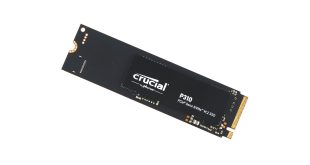Many SSD manufacturers have to buy components through multiple vendors before they are able to sell the final unit to you, the customer. Companies with fewer ‘steps' should show ‘purer' pricing – less inclined to be impacted by a multitude of component price moves. KitGuru puts Crucial's latest offer on Amazon under the margin-microscope.
The companies with the biggest advantage in the memory markets are those with the closest ties to manufacturing.
Line up the industry giants here (in size order) and you get Samsung, Toshiba, Hynix, Micron and Intel – pretty serious organisations.
Within one of these, lies greater granularity.
In addition to the company name itself, Micron also sells its products as Crucial and Lexar (it also partnered with Intel on another project to make NAND in Israel, but was not able to make it work as planned and it was subsequently saved by Intel – hence Intel's name on the NAND leader board).
So when Crucial sells a drive, it is doing so as a ‘genuine manufacturer' – part of the fourth largest producer of memory chips in the world – and so there very few costs being slipped in by 3rd parties.
With the offer being as ‘pure' as you can reasonably get, KitGuru asks the question, “So if you wanted a Crucial M500 960GB drive from Amazon in the UK or USA, what would the price difference be?”
Amazon claims to have taken a chunk off the price of this drive in the UK, so why is it still over $50 more than in the USA?

.KitGuru says: Manufacturers have a lot of control over what prices arrive in the channel. We wish IT pricing was more competitive in the UK for 2014.
Comment below, in the KitGuru forums or join us online over at Facebook.
 KitGuru KitGuru.net – Tech News | Hardware News | Hardware Reviews | IOS | Mobile | Gaming | Graphics Cards
KitGuru KitGuru.net – Tech News | Hardware News | Hardware Reviews | IOS | Mobile | Gaming | Graphics Cards


